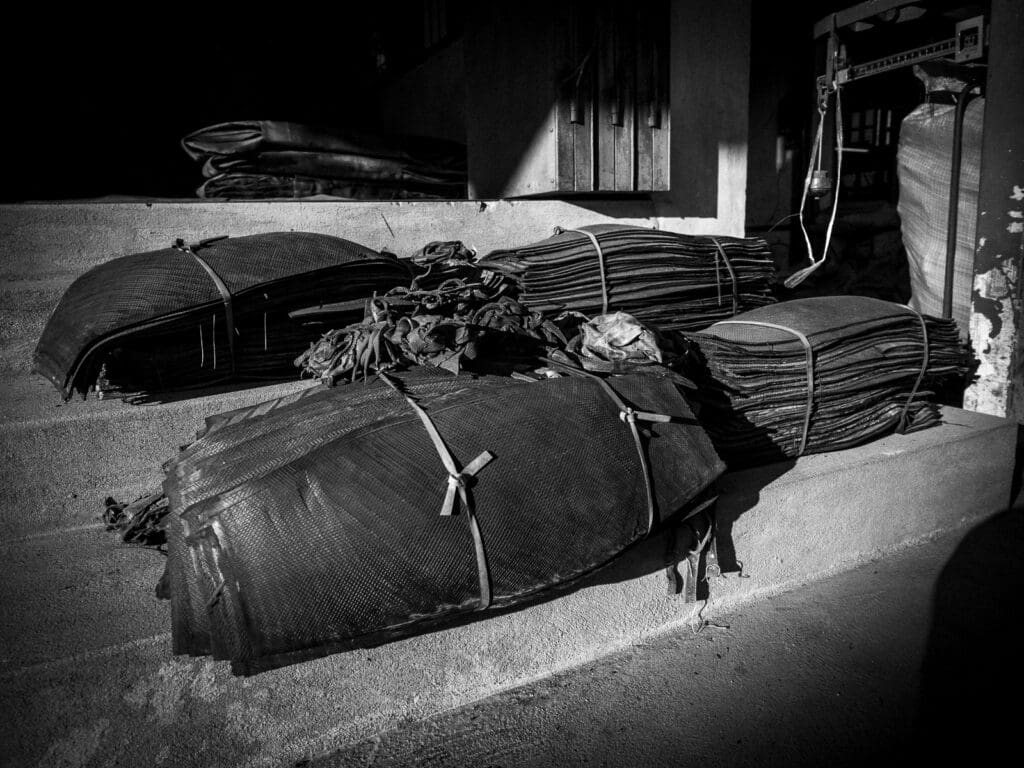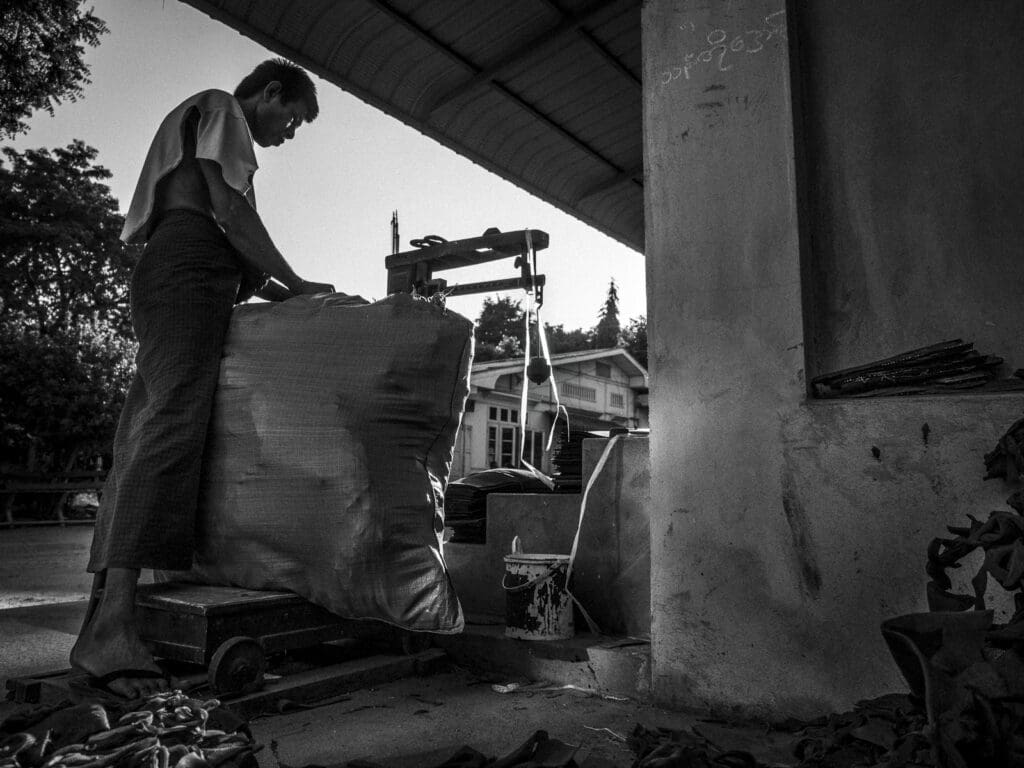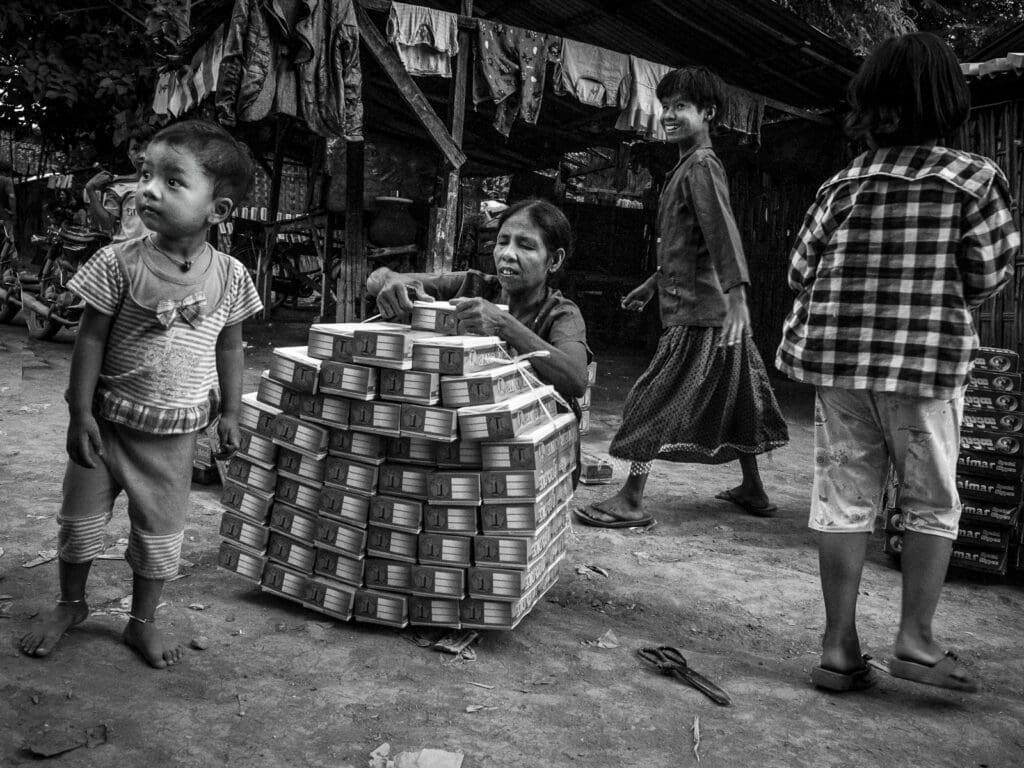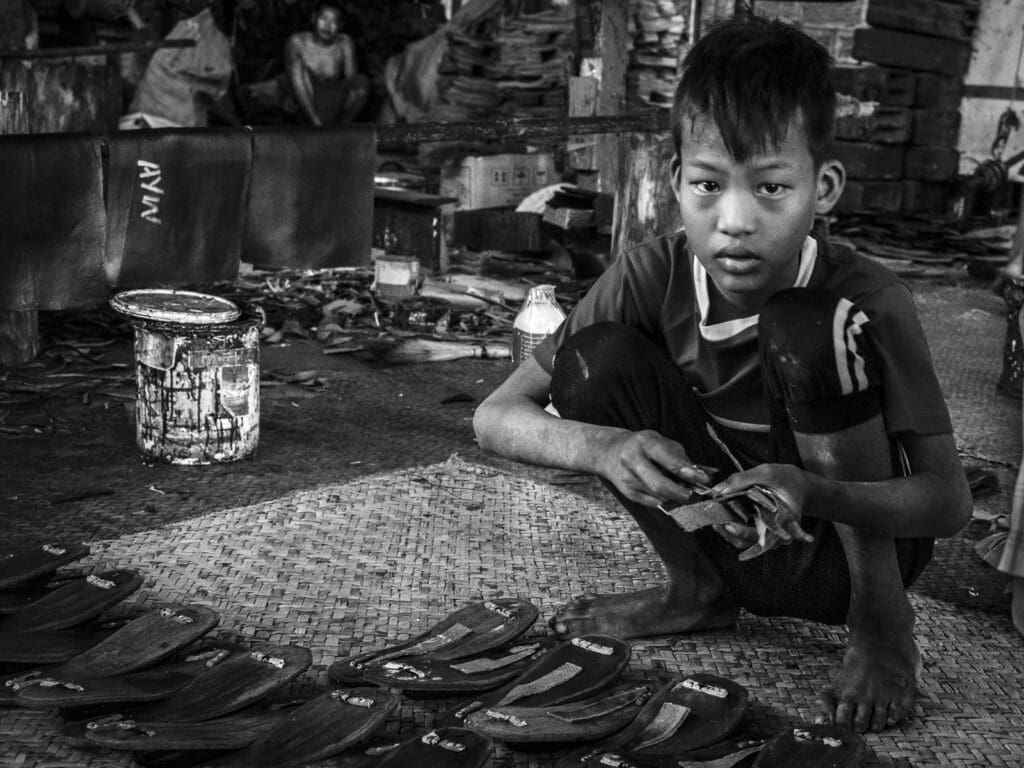An entire village on the far outskirts of Bagan, located on the eastern bank of the Irrawaddy River in Burma (Myanmar) – a place Marco Polo described as the most beautiful ever seen – gravitates to the shoe business.
The pungent smell of adhesives reaches the nostrils well before reaching the plant, a shed of sheet metal, wood and broken glass. Outside, a blinding light. Inside, a stifling heat and shadow were cut violently by a few blades of light. There is silence in the air, mixed with the smell of hydrocarbons and rubber. Young hands and bare feet. Adults and older children to the obsolete machinery, while the others go on to the remaining tasks. Outside, tiny children play and watch what goes on inside the shed, waiting for their turn.



An indecent reality
Child labour is a phenomenon of global dimensions. According to recent estimates by the International Labor Organization (ILO), there are still 160 million children-63 million are girls, and 97 million are boys-who are victims of child labour. Almost half, 79 million, are forced into hazardous work activities that endanger their health, safety and moral development. Many of these children live in contexts affected by wars and natural disasters in which they struggle to survive, rummaging through rubble or working on the streets.
Others are recruited as child soldiers to fight in wars waged by adults.
The reality these data describe is unacceptable.

Myanmar’s already precarious humanitarian situation has plummeted since the military coup of 2021. Aung San Suu Kyi, human rights activist, proud opponent of the military regime in Burma and 1991 Nobel Peace Prize winner, was re-arrested during the coup three years ago. Considered a symbol of humanitarian rights and democracy, when she was leading her country, Aung San Suu Kyi was the focus of international criticism for her handling of violence against Burma’s Muslim Rohingya minority.
The following photos were taken in November 2015, during the historic democratic elections held in the country that changed its name after the 1989 coup – led since 1962 by a military regime currently back in power.

